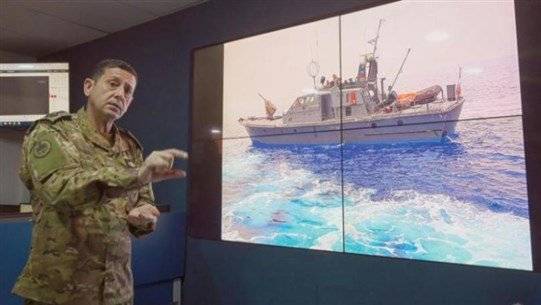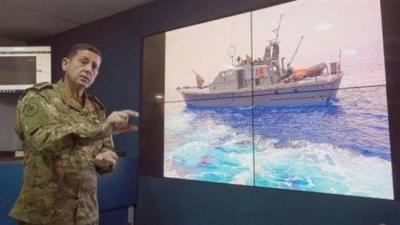Despite the passage of about two and a half months since the sinking of a boat carrying around 80 people on an illegal migration journey from the city of Tripoli in northern Lebanon to the shores of Italy, the families of the victims are still waiting for a submarine that members of the Lebanese community in Australia pledged to fund for its shipment to Tripoli to recover the sunken boat at a depth of 400 meters, which reportedly holds around 30 bodies.
The submarine, which was supposed to arrive over a month ago, faced numerous obstacles, particularly since those overseeing its shipment are expatriates in Australia, not the Lebanese state or the army, both of which have confirmed they lack the means and technologies to retrieve the sunken boat. Dr. Jamal Rifi, a Lebanese resident in Australia and supervisor of the submarine's shipment process, spoke of several challenges that delayed the submarine’s arrival, stating, “We don't have experience in this matter, and it is not our field of work.” He added, “Typically, countries would arrange similar operations. However, to soothe the families' wounds, we did our utmost to ensure the submarine’s arrival,” noting in a statement to "Asharq Al-Awsat" that “Funding the project was the easiest among all the challenges we faced, as we managed to secure 380,000 Australian dollars quickly.”
He continued, “After that, we were asked to ensure the safety of the submarine and its security during its work in Tripoli, which the army took on quickly. The last issue we faced was related to regulations issued by the European Union that prohibit shipping any materials and technology used for military purposes, even for a peaceful mission; however, we recently obtained a special permit to send it.” Rifi pointed out that “during the submarine’s operational period at sea, it will need support boats, cranes, electricity, and other requirements that the Lebanese navy has taken the responsibility to secure,” adding that “the submarine was shipped from the Canary Islands and is on its way to Barcelona, and we are working on securing a spot for it on the fastest ship heading to Beirut.”
The families of the victims are aware that their loved ones' bodies are likely no longer intact and have probably decomposed, but they yearn to recover even their clothes, shoes, or toys from their children, which is what Dean Dandashi, a father who lost his three sons in the boat sinking on April 23, seeks. He closely monitors the submarine's shipment and anticipates its arrival in early August. Concurrently, he is following the army investigations to determine the cause of the boat's sinking, noting in a statement to "Asharq Al-Awsat" that “the investigation is ongoing and serious, and several witnesses have been interviewed twice.”
For its part, military sources confirm that “the army is cooperating to the maximum extent to ensure the submarine's arrival and is making all necessary communications and efforts to overcome any obstacles.” The sources added to "Asharq Al-Awsat": “We, before any other party, want to reach a conclusion... investigations are ongoing, and we are waiting for the retrieval of the boat to activate them.”
While some families are awaiting the boat’s recovery to affirm their claim that army personnel deliberately collided with the vessel leading to its sinking, retired Army Colonel Dr. Hisham Jaber, president of the Middle East Center for Strategic Studies, does not believe that this will have a significant impact on the investigations, emphasizing in a statement to "Asharq Al-Awsat" that “what happened is quite clear regarding the fact that the boat was worn out and was carrying three times its allowable load, which led to its sinking.”




